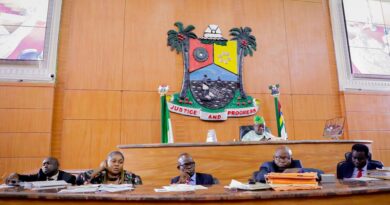UN Women: Security Challenge Has Exacerbated GBV In Nigeria
By Bukar BOLORI
The United Nations Women Representative to Nigeria and Economic Community of West African States (ECOWAS), Ms. Beatrice Eyong has decried that security challenges arising from armed conflict, insurgency, banditry, and kidnappings across the country has exacerbated the prevalence of Gender Based Violence (GBV) in Nigeria.
Eyong, in her welcome address in Abuja on Thursday at the Convening of Civil Society Organisations (CSOs) on Assessing EVAW and GEWE Landscape in Nigeria, said “we are confronted with the harsh reality that gender-based violence continues to be a pervasive and deeply rooted problem in our society. It affects women and girls of all ages, backgrounds, and walks of life, depriving them of their fundamental rights and freedoms. It is a violation of human rights, a barrier to development, and a threat to peace and security.”
She noted that: “As practitioners, we are all very familiar with the statistics but we must never become numb to the fact that each number represents a life. A life with ambitions, potential and one that has value.
“Globally, an estimated 736 million women—almost one in three—have been subjected to physical and/or sexual intimate partner violence, non-partner sexual violence, or both at least once in their life. 33 percent Nigerian women have experienced physical violence by the age of 15. Similarly, data from the Mirabel Centre in Lagos show that 81 percent of reported cases of sexual assault between 2013 and 2019 were perpetrated against children – 67 percent of the perpetrators were known.
“In Nigeria, these staggering statistics have worsened because of the security challenges arising from armed conflict, insurgency, banditry, and kidnappings across the country. Additionally, the economic downturns arising from the recent devaluation of the local currency, high inflation, and the slow recovery from global economic shocks from COVID-19 have also exacerbated the prevalence of GBV. Furthermore, women’s voices continue to be marginalized with Nigeria holding the lowest figure for women’s representation in politics. Unfortunately, this situation impacts negatively on the gender profile of Nigeria.”
Eyong insisted that: “Today’s convening provides us with an opportunity to take stock of our achievements in the last five (5) years, identify gaps and challenges, and explore new strategies and partnerships to accelerate progress towards ending violence against women and promoting gender equality and women’s empowerment. This is especially off the back of the large investment made by the EU-UN joint Spotlight Initiative to eliminate violence against women and girls. What are the lessons learned and how do we sustain the gains made?”
She explained that: “UN Women with support from the Ford Foundation is implementing the Traditional and Cultural Leaders for Ending GBV by Advancing Advocacy, Policy and Social Norms Change in Nigeria and West Africa (LEAP). This intervention places emphasis on prevention, transformation of norms and practices and engagement of influential cultural leaders to end GBV. This is critical because at its base root of GBV are systems of unequal power and social structures.”
She, however, told the participants that: “Your insights, expertise, and experiences are invaluable as we work together to create a more just, equal, and violence-free society for all.
“I encourage you to actively participate in the discussions, share your knowledge and best practices, and engage in constructive dialogue with your peers and partners. Let us use this platform to renew our commitment to the cause, to learn from each other, and to strengthen our collective efforts to achieve our common goals.”




